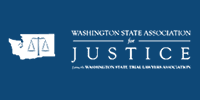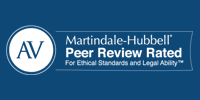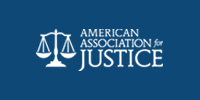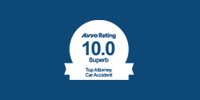Free Case Review
Free and confidential consultation with an experienced attorney at the Whitfield Coleman Montoya.
Free and confidential consultation with an experienced attorney at the Whitfield Coleman Montoya.
While Tesla and other manufacturers argue that Autopilot and other forms of self-driving technology make vehicles safer, recent fatal accidents involving self-driving vehicles suggest otherwise. In the rush to get autonomous vehicles on the road, safety regulations are still catching up. This has left drivers, passengers, and pedestrians vulnerable to the unique safety risks associated with self-driving technology.
If you or a loved one have been injured in an accident with a vehicle that had autopilot technology engaged, you may be entitled to compensation. Contact Whitfield Coleman Montoya for a free legal consultation. We can review the elements of your case to see if you may qualify for a lawsuit against the vehicle’s manufacturer.
The Society of Automotive Engineers (SAE) uses a scale of 0 to 5 to distinguish between the different self-driving automation levels.
A vehicle that is classified as a level 0 requires the driver to be in full control at all times, while a vehicle that is considered to be a level 5 is one that requires no assistance from the driver—the vehicle is in full control at all times. Most self-driving vehicles fall somewhere in the middle right now and are rated a level 2 or 3. This means that they are partially automated and require drivers to remain alert and ready to take control of the vehicle at all times.
The following are some examples of partially autonomous vehicles sold in the United States:
So far there have been four confirmed deaths associated with Tesla’s Autopilot technology, including three drivers and one pedestrian. However, the National Highway Traffic Safety Administration is currently investigating dozens of other crashes involving Tesla vehicles to see what role, if any, the Autopilot software played in the crash.
One of the most recent fatal crashes involving Tesla’s Autopilot occurred in May of 2021. A Tesla Model 3 crashed into an overturned truck in Southern California, killing the driver. It has since been determined that Autopilot was engaged at the time of the crash. Before the accident, the driver had posted videos to TikTok praising Tesla’s self-driving technology.
The Californian accident came shortly after another fatal crash involving a Tesla Model S in Texas. A driver and passenger were tragically killed when the Tesla drove off the road, struck a tree, and caught on fire. The cause of the crash is still being investigated.
One of the first fatal accidents involving Tesla’s Autopilot system occurred in 2016 when Joshua Brown’s Tesla Model S slammed into a tractor-trailer that was crossing into his lane. After investigating the accident, the National Transportation Safety Board determined that the Autopilot system had failed to detect the truck.
Tesla has been hit with multiple lawsuits and criticism for touting the safety of its Autopilot technology amid a string of fatal accidents.
Critics argue that Tesla misleads drivers into thinking that their technology is more autonomous than it actually is. While they claim that their Autopilot software is safer than distracted and error-prone human drivers, multiple accidents involving Teslas crashing into trucks, trees, or even pedestrians have proven otherwise.
In addition to the software’s failure to detect obstacles, groups like the National Transportation Safety Board have claimed that Tesla’s Autopilot lacks safety measures that effectively monitor drivers’ attentiveness to prevent misuse. Tests have shown that Autopilot will not shut off, even if the driver moves to the backseat.
Multiple wrongful death lawsuits have been filed against Tesla on behalf of victims killed in crashes involving engaged Autopilot software. In 2020, the family of the first pedestrian who was killed in a crash involving Tesla’s Autopilot filed a lawsuit against the manufacturer. Another wrongful death lawsuit was filed in 2019 on behalf of Walter Huang, an Apple engineer who died when his Tesla crashed into a highway median.
If you or a loved one are injured or killed in an accident involving a semi-autonomous vehicle, you may be able to pursue justice against the manufacturers.
These cases can be complex and require thorough investigations to determine whether or not self-driving software was engaged and at fault for the accident. However, Whitfield Coleman Montoya has the resources and experts required to help your family find answers and closure after an accident.
Our product liability lawyers can assist with the following:
In addition to pushing manufacturers to implement greater safety measures for their self-driving technology, filing a lawsuit can also help you recover compensation for the losses you may have suffered as a result of your injury or the death of a loved one.
A lawsuit may compensate you for the following:
Whitfield Coleman Montoya’s product liability lawyers are no strangers to standing up to large corporations on behalf of our injured clients. We fight because we care—we care because no corporation should put profits over consumer safety.
To learn more about how our law firm can help you seek justice for a self-driving vehicle accident, schedule a free legal consultation. We offer a no-fee promise which means we only get paid if you get paid.
Call: 615-921-6500 for a free and confidential consultation with an experienced attorney at the Whitfield Coleman Montoya.
For e-mail inquiry, please fill out and submit the form below.
Our staff is available 24 hours a day, seven days a week to review your case.
We don’t get paid, unless you get paid.
Our attorneys have more than 85 years of combined experience in personal injury law.
We have a winning record – in and out of court.









800 S. Gay Street
Suite 1100
Knoxville, TN 37929
518 Monroe St.
Nashville, TN 37208
19 N. Main St.
Madisonville, KY 42431
1000 Highland Colony Pkwy
Suite 5203
Ridgeland, MS 39157
201 Alhambra Circle, Suite 1100
Coral Gables, FL 33134
